Fifty years ago, in June 1969, Canada enacted the Criminal Law Amendment Act (Bill C-150) that increased violent police crackdowns on queer and trans communities across the country for several decades. While the current government claims that the reform led to the “decriminalization of homosexuality”—and even released a commemorative coin to that effect this year—in reality, the criminalization of queer sex escalated after 1969, as police enforcement of laws against same sex acts in bars, bathouses, and other queer spaces deemed “public,” resulted in more raids, beatings, and arrests than ever before.1 But queer and trans people resisted…
Looking back on the last fifty years, and beyond, this issue aims to commemorate the revolutionary grassroots of queer liberation.
That same month in 1969, led by the actions of trans women of colour, patrons of the Stonewall Inn in New York City stirred to action against ongoing police repression. “The more they beat us, the more we went back for. We were determined that evening that we were going to be a liberated, free community…We had nothing to lose,” Stonewall veteran and trans rights activist Sylvia Rivera said of the night that sparked the modern queer rights movement.2
Despite the integral role of trans women of colour in the nascent queer liberation movement, however, many found themselves pushed to the side as groups worked toward the mainstreaming of queerness, instead of the queering of mainstream society. “I understand how much everybody likes to fit into that mainstream gay and lesbian community… But you are forgetting your grassroots,” Rivera said at a Stonewall remembrance speech in 2001.3
Looking back on the last fifty years, and beyond, this issue aims to commemorate the revolutionary grassroots of queer liberation. It spotlights historic and contemporary moments of LGBTQ2+ resistance across Canada—from the 1918 creation of the first ever North American queer magazine in Montreal, to the 1970s and 80s national organizing of gay, lesbian, and bisexual rights groups from Halifax, to the founding of vital spaces for queer and trans community building in Toronto in the 1990s through to present day. It reminds us to follow the example of trans heroes in Canadian case law who have fought back against dehumanization to gain and reaffirm their rights and the rights of others. It encourages us to care for one another—as depicted in the beautiful cover by Montreal-based artist Kyng—and to never forget our histories, or those who we have lost in the struggle for equal rights. It remembers the Black trans women who have been killed this year, their names are engraved on the opposite page.
Visionary Black lesbian poet Audre Lorde once said, “Sometimes we drug ourselves with dreams of new ideas… But there are no new ideas waiting in the wings to save us… There are only old and forgotten ones, new combinations, extrapolations and recognitions from within ourselves—along with the renewed courage to try them out.”4 At a time when our hard-fought rights feel more precarious than ever, we must continue to resist, and to uplift and to protect the most marginalized members of our communities.
As you enjoy the brilliant artistic, poetic, and historical works in this issue, we encourage you to reflect on what can be learned from the past, as we continue the fight for equality both inside and outside our communities. The raised fist at end of each article is a symbol of solidarity and support, an expression of unity, strength, and resistance, to keep you grounded in those values as you as you move through the issue.
Happy reading,
Sofia Misenheimer and Vincent Mousseau
Founding Editor Managing Editor
- Hooper, Tom. “Canada is releasing a coin commemorating a myth: that homosexuality was decriminalized in 1969,” CBC News, Apr 22, 2019. https://www.cbc.ca/news/opinion/canada-coin-1.5100177
- Rivera, Sylvia, “Bitch on Wheels.” Street Transvestite Action Revolutionaries: Survival, Revolt, and Queer Activist Struggles. New York: Untorelli Press, 2011. Pp. 32-39.
- Ibid.
- Lorde, Audre. Sister Outsider: Essays and Speeches. Trumansburg, NY: Crossing Press, 1984.



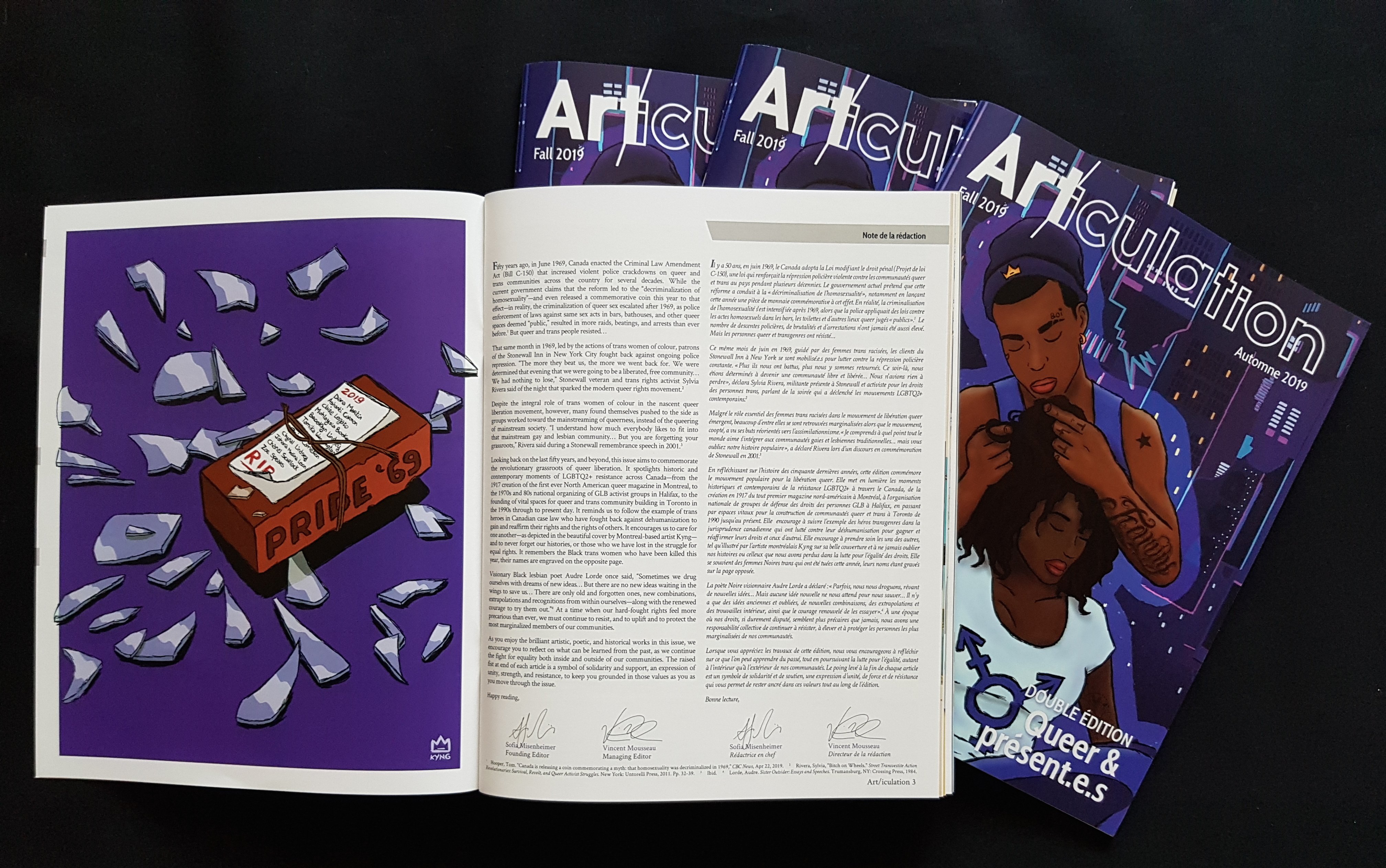


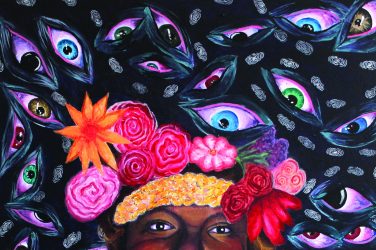
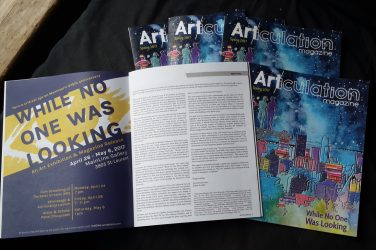
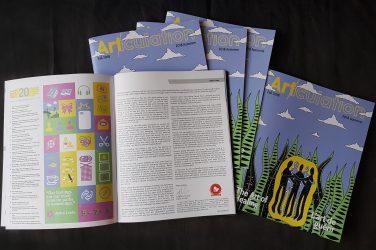
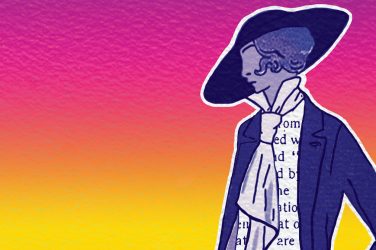
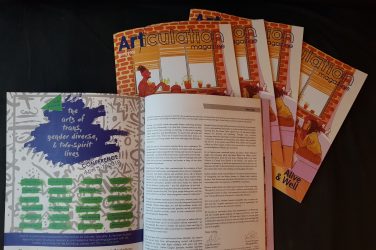
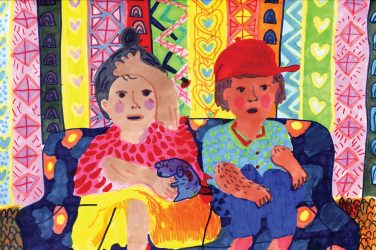
Show Comments (0)